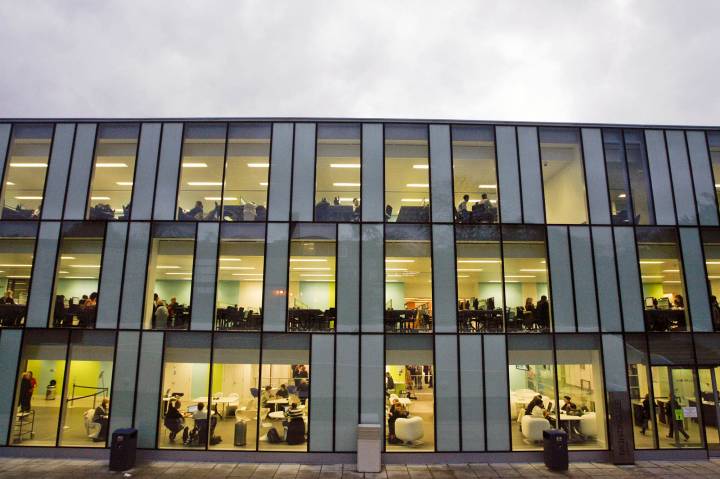Scottish writing and tradition
This event has taken place
View all upcoming events at Kingston University.
Time: 6.00pm - 7.00pm
Venue: Room JG2011, John Galsworthy building, Penrhyn Road campus, Penrhyn Road, Kingston upon Thames, Surrey KT1 2EE
Price:
free
Speaker(s): Dr Trish Reid and Professor Andrew Teverson

A 'Cultural Histories @ Kingston' double feature
Dr Trish Reid – 'The explanatory power of the lie: Paul Bright's Confessions of a Justified Sinner'
This paper will offer an analysis of the National Theatre of Scotland and Unitled Projects piece, Paul Bright's Confessions of a Justified Sinner (2013). Presented as a piece of documentary theatre about a young Scottish theatre maker and his attempt in the late 1980s to stage an adaptation of James Hogg's cult Gothic novel The Private Memoirs and Confessions of a Justified Sinner (1824) the show included autobiographical testimony, recorded interviews and the presentation of material evidence in the form of and exhibition. However, Laing's documentary was in fact an elaborate hoax, simultaneously a contemplation on the toolkit currently employed to establish historical and theatrical 'truth', and a multi-layered homage to Hogg's classic novel, which itself features a very unreliable editor, a visionary fanatic and Scottish literature's original 'doppëlganger'. Paul Bright is something more than a fiction, then. It is a lie, a deliberate, elaborate lie, which nonetheless carries a vital charge of explanatory power. Consequently it raises interesting questions about the relationship between performance and truth, performance and the past, and the unstable character of history in the construction of national narratives.
Professor Andrew Teverson – 'Andrew Lang and Scottish Folk Tale Collection'
In April 1863, the Scottish folklorist Andrew Lang collected two oral folk narratives from his great aunt, Margaret Craig of Darliston in Elgin. These narratives have since become significant fictions in the canon of Scottish folk tale; but though Lang was their collector, and though he wrote about these narratives on several occasions throughout his career, he repeatedly ignored their Scottish lineage, and emphasised their status as universal tale types. This paper explores the motives for Lang's elision of the Scottish origins of his stories, and locates Lang's response to the tales in a broader cultural tension between the national and international characteristics of folk tales.
Reception to follow in the Picton Room.
For further information about this event:
Contact: Professor Patricia Phillippy
Tel: 020 8417 7344
Email: p.phillippy@kingston.ac.uk
Directions
Directions to Room JG2011, John Galsworthy building, Penrhyn Road campus, Penrhyn Road, Kingston upon Thames, Surrey KT1 2EE:
